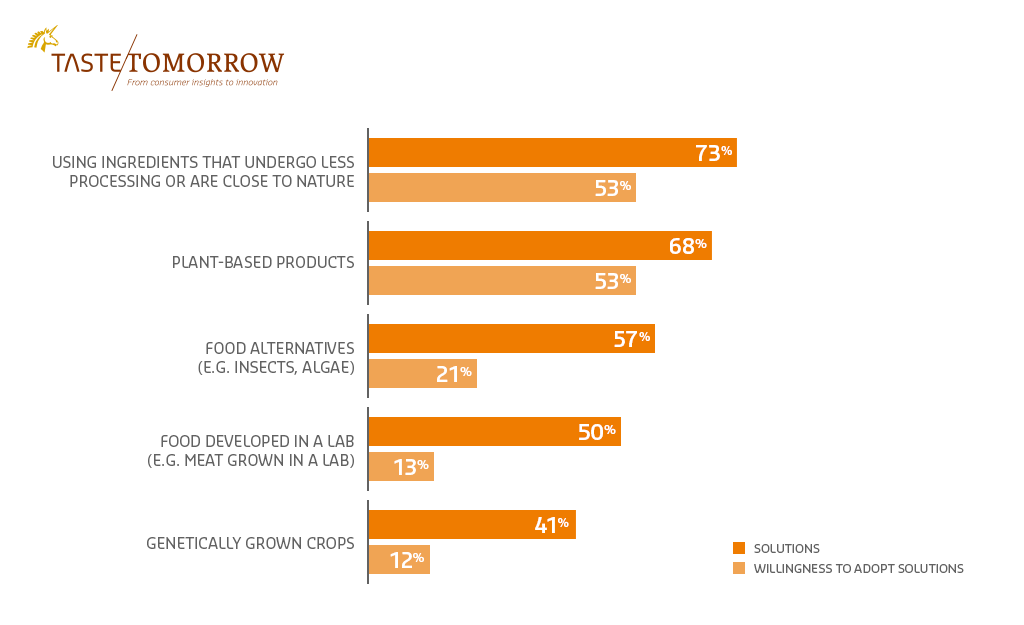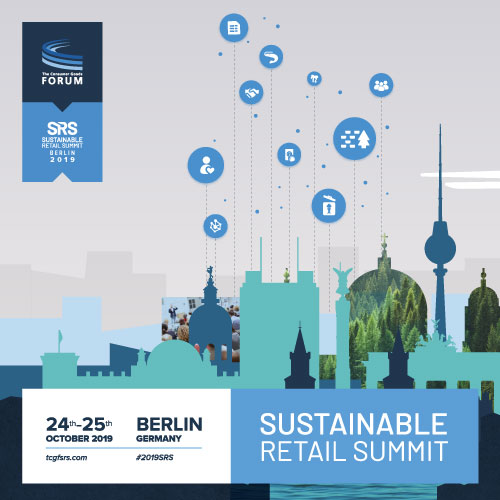Today’s consumers are conscientious: they act responsibly and want to eat ethically. They link food to their personality, so they want their food decisions to reflect their ethical values. This link is particularly strong among millennials, and it’s closely connected to sustainability and several of the key workstreams CGF members find themselves working on, like food waste, plastics, deforestation and forced labour.
‘Taste Tomorrow’: Nine Trends for Setting a ‘Foodstep’ into the Future
‘Taste Tomorrow’ is the world’s largest bakery, patisserie and chocolate consumer survey, conducted for Puratos(1) in 40 countries to gather data from over 17,000 consumers. The results of the 2019 edition identified nine key worldwide trends: Taste, Health, Freshness, Craft, Ethical Lifestyle, Transparency, Ultimate Convenience, Next Level Experience and Hyper Personal.
Food as a Lifestyle
Today’s consumers want to act responsibly and eat ethically. Millennials, in particular, want their food decisions to reflect their ethical values. The concerns of today’s consumers can be condensed into three key concepts:
- Planet
- People
- Future generations
1. Caring About the Planet: Responsible Eating Goes Well Beyond Personal Benefits
Consumers clearly understand that we only have one planet. They prefer sustainably produced products, restrict their use of plastic and opt for eco-friendly packaging. But consumers also wish to promote animal welfare and locally sourced food. The results of the survey are clear: responsible eating goes beyond personal benefits. This is a massive evolution compared to the outcome of the previous edition of the survey, which was held in 2015. At that time, consumers regarded food waste from an egocentric perspective, in which throwing away food was tantamount to throwing away money. They didn’t really care about wasting natural resources. They do now. In 2015 sustainable products were nice-to-have. Today, they have evolved into must-haves.
A few examples of concepts that reflect this trend:
- Toast Real Ale makes ale from upcycled bread. This artisanal brewery collects left-over bread from retailers and artisanal bakers and uses it to make premium ale. People love the idea behind upcycling and are happy to pay a premium price. It’s also a craft beer (not mass-produced), so they are contributing to the craft trend(1) as well (https://www.toastale.com/).
- BarstensVol offers a line of convenient, ready-to-heat sweet pepper, zucchini, mushroom and tomato soups from overripe or excess produce. BarstensVol’s recipes are specifically developed to use up produce that regularly goes to waste (https://barstensvol.nl/).
- Pain à la Coupe is a concept to sell bread by its weight. The consumer can ask for bread that weighs exactly as much as he or she needs and doesn’t have to buy an entire loaf. This way, less bread gets wasted (https://www.puratos.com/blog/pain-a-la-coupe).
2. Caring About People: Farmers Should Receive a Fair Price
Consumers increasingly care about other people. It’s no longer solely about your own contribution to a sustainable planet. The survey revealed that 53% of consumers worldwide prefer to buy products for which farmers receive a fair price. 24% already buy such products weekly and 31% expect to do this more often in the future.
Puratos set up a programme designed to improve the lives of cocoa farmers. The Cocoa-Trace programme places an emphasis on taste, quality, education and training and empowers farmers to hone their skills to enhance productivity and sustainability. With the payment of a chocolate bonus of €0.10/kilo of chocolate on top of the quality premium that farmers receive the programme aims to ensure that chocolate can still be enjoyed for generations to come.
3. Caring About Future Generations: How Will We Secure Our Food in the Future?
There is a growing concern among consumers about the growing world population. The FAO (Food and Agriculture Organization of the United Nations) estimates that food production will need to increase by 60-70% to feed around 9.2 billion people by 2050. This fuels the concern: from where will food for all these people come? The survey shows that almost 90% of consumers expect food shortages in the future.
When asked for possible solutions, consumers worldwide put forward several options:
- 72%: using ingredients that undergo less processing or are more natural, as this means that fewer natural resources such as energy or water are used, which subsequently results in products with a lower ecological footprint
- 68%: plant-based products (these are not only sustainable but also healthy, which is another important factor in food choices)
- 49%: food alternatives such as insects and algae
- 41%: food developed in a lab
- 39%: genetically grown crops
However, the survey shows that insects & algae, lab-grown meat and genetically grown crops are not something most consumers are willing to accept yet. The near-future potential lies in ingredients that are more natural and plant-based products.
To sum up, we can say that food, lifestyle and ethics are more closely linked than ever, and that consumers want companies to meet their needs for an ethical lifestyle. Do you want to learn more about this and other global consumer trends? Visit us at www.tastetomorrow.com.
You can also learn more about the CGF’s work on these sustainability issues by registering for the upcoming Sustainable Retail Summit in Berlin this October. Register today to learn how to sort fact from fiction and address the hard truths.
(1) Craft is hot and consumers are willing to pay more for handcrafted products. It is all about food with a human touch that showcases the expertise of the artisan’s love for the product and the craft and the sharing of tradition and heritage.
This post was written and contributed by:
Luc-Olivier Rahier
Group Conversation Manager
Puratos



